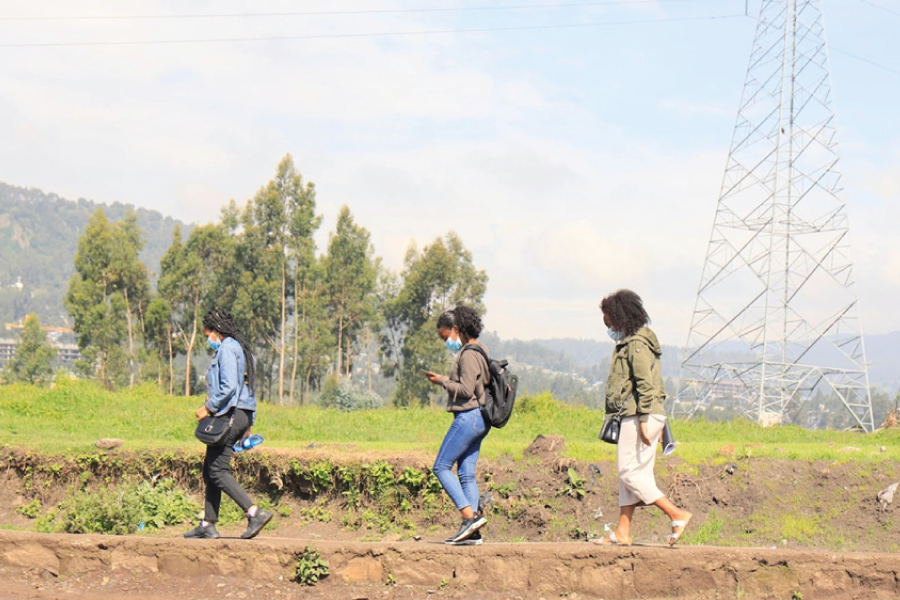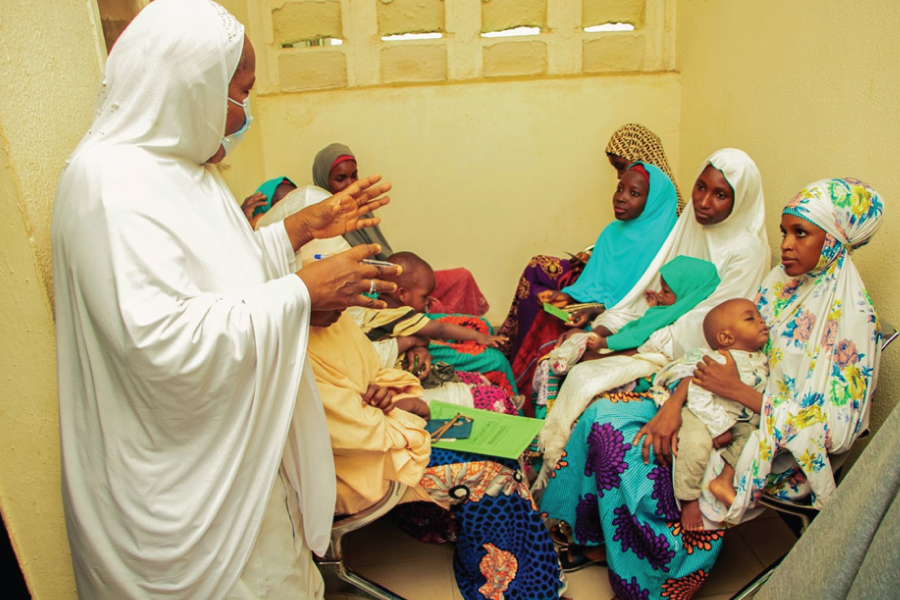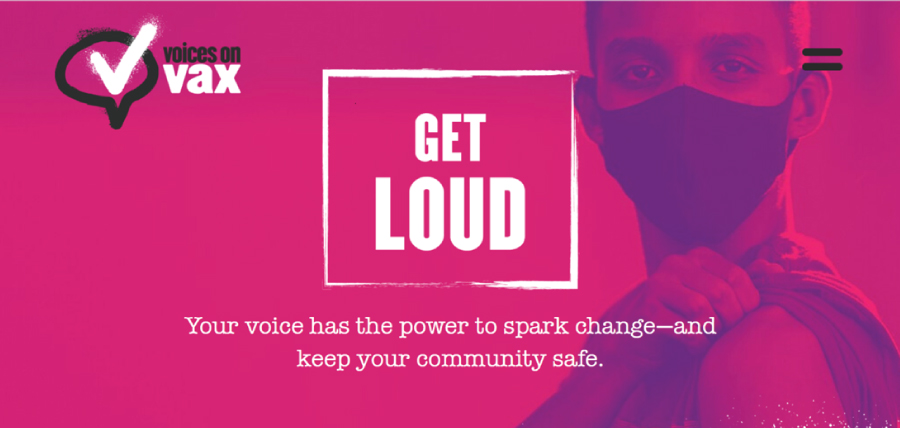Research & Practice Highlights
Intimate partner violence (IPV) is a leading cause of women’s morbidity and mortality
Michele Decker, ScD, MPH, Bloomberg Professor of American Health
Director, Women's Health & Rights Program, Center for Public Health & Human Rights
Charvonne Holliday, PhD, MPH, Assistant Professor

Intimate partner violence (IPV) is a leading cause of women’s morbidity and mortality – and homelessness and housing instability that can create a cascade impact on health. With support from the National Institutes of Justice, Drs. Michele Decker, ScD, MPH and Charvonne Holliday, PhD, MPH, and a team of PFRH trainees including PhD student Kristin Bevilacqua are working to build the evidence base on supportive housing as an understudied tool to improve health and safety for women escaping partner violence. This two-year study was undertaken in collaboration with House of Ruth Maryland (HRM), a leading provider of comprehensive IPV prevention and response supports; the HRM team was led by Bloomberg American Health Initiative Fellow Janice Miller. The team examined two leading service delivery models: on-site transitional housing (TH) to build stability before transitioning to more permanent housing, and community-based rapid re-housing (RRH), which follows “housing first” principles and provides graduated rental assistance and services to build stability in place.
This two-year study enrolled a mini cohort with IPV survivors (n=70) receiving housing services with follow-up at three-month intervals over six months. Qualitative interviews contextualize survey results. The team managed an 81% retention rate despite the challenges of the Covid-19 pandemic.
Key learnings include:
- Rapid re-housing and transitional housing for IPV survivors significantly reduced both IPV revictimization and housing instability; full results are currently under review.
- Actionable gaps in organizational IPV response readiness were identified in the capacity assessment with housing providers in Maryland; led by MSPH alumna, Arshdeep Kaur ’20. View publication.
- Survivors re-housed in significantly more deprived and racially segregated census tracts within their respective regions, potentially indicative of sustained economic challenges. View publication.
Results dissemination has included several rounds of presentation with community and policy stakeholders, in conjunction with HRM’s Training Institute. Building the evidence base on what works to promote housing, safety and health is more relevant than ever before, given the economic disruption of the pandemic, the underlying economic gender inequities that disadvantage women, and the elevated risks for severe partner violence that can accompany emergencies like Covid-19. Current evidence that housing reduces revictimization and advances stability positions housing as a critical tool in advancing women’s safety and health.
World Contraception Day Event and Other News
GATES INSTITUTE'S WORLD CONTRACEPTION DAY CELEBRATION WELCOMED OVER 1,000 REGISTRANTS
In celebration of World Contraception day on September 26, Bill & Melinda Gates Institute for Population and Reproductive Health hosted a World Contraception Day Celebration Webinar Series featuring three sessions co-hosted by 120 Under 40: The New Generation of Family Planning Leaders and the International Conference on Family Planning. Through the series, Gates Institute was able to convene global attendees across the three consecutive sessions, and was featured in Bayer’s collection of World Contraception Day events hosted globally by the sexual and reproductive health community.
Across all events, we were pleased to welcome over 1,000 registrants committed to improving family planning, AYSRH programming, and strengthening the movement for universal health coverage that includes FP & SRHR care for all. Initial reports indicate that we reached over 250,000 people thanks to the continued commitment and engagement of our attendees and community, and will continue to broaden this reach as the recordings are shared more broadly within the Johns Hopkins Bloomberg School of Public Health and our larger SRHR community. The ICFP website saw a particularly large increase in web traffic, social media follows, and general engagement, with over 5,000 site visits on 22 September alone. Other metrics show that Lagos, Nigeria and Nairobi, Kenya boasted the most number of event attendees across all cities, showcasing the ever-increasing desire and need for these events to continue despite the challenges presented by COVID-19.
To kick off the series on 22 September, the 120 Under 40 Ingenuity Fund Award Winners Panel featured five projects funded through the 2020 Ingenuity Fund. The winners gathered to share their innovative projects and ingenious ideas on how they have addressed both COVID-19 and the reproductive health challenges in an integrated way. The panel featured all seven winners of the 2020 Ingenuity Fund: Adebisi Adenipekun, Margaret Bolaji, Andrea DeMaria, Alison Hoover, NkasiObim Nebo, Jacqueline Fonkwo, and June Low.
Dr. Tlaleng Mofokeng and the 2022 International Conference on Family Planning Secretariat brought together three distinguished youth family planning champions from around the world, Vithika Yadav, Margaret Bolaji, and Kerigo Odada, to discuss what is being done to protect access to family planning during the pandemic in ICFP’s first-ever episode of The Pulse of Family Planning with Dr. T which welcomed over 700 global participants. We also launched the newest ICFP community action, The Power of Family Planning, a special video campaign for our community members to share why family planning is so powerful in their lives.
Lastly, Gates Institute hosted “AYSRH in Action” with 2017 120 Under 40 Winner Joshua Dilawar, featuring GI-supported programs share their exciting global adolescent and youth sexual and reproductive health (AYSRH) work – showcasing advocacy and program implementation successes and informative research that reveals the impact COVID-19 is having on contraceptive use among young people.
This event series was made possible by the panelists, moderators, organizers, and facilitators who dedicated their time and resources to creating and executing engaging panels focused on spotlighting youth initiatives, stories, and experiences with contraception.
PMA Ethiopia Launches a “Behind-the-Scenes” Blog

PMA Ethiopia launched a series of blog posts on Medium that share “behind the scenes” insights into a survey project in Ethiopia — Performance Monitoring for Action Ethiopia (PMA Ethiopia). In this blog, we will take you from data collection updates in communities to results of our policy-changing research. If you are interested in global health, digital health, or reproductive, maternal, and newborn health research and programs, this blog is for you.
Ethiopia is one of the most populous countries in the world with 112 million residents, about three-quarters of whom live in rural areas. Understanding peoples’ access to and use of life-saving health care services, such as newborn care practices and family planning, is essential for addressing health needs and empowering Ethiopians to lead healthy, fulfilling lives.
To generate comprehensive, accurate, and up-to-date data on such a large, culturally and geographically diverse population, PMA Ethiopia conducts surveys focused on reproductive, maternal, and newborn health. The project is a collaborative effort between Addis Ababa University, Johns Hopkins University, and the Ethiopia Federal Ministry of Health. PMA Ethiopia surveys transform on-the-ground conversations with Ethiopian women and healthcare workers into data that are used by policy makers, program managers, and other curious minds (like yours!) to take evidence-based action to improve the health of women and children across the country.
Accessibility of the PMA platform
Anyone can use PMA Ethiopia data; it is easily accessible. On the PMA website you can view technical reports and briefs that summarize survey findings, download full datasets to conduct your own analyses, and use an interactive tool, DataLab, to visualize estimates and trends in reproductive health. We encourage you to explore the website and learn about reproductive, maternal, and newborn health in Ethiopia.
Follow us on Medium and read our latest blogs:
Working for PMA Ethiopia — One Woman’s Experience
How can we evaluate whether a health facility is “ready” to provide childbirth care?
The impact of COVID-19 on pregnant women’s place of delivery in Ethiopia
Implement, reflect, and adapt: Lessons learned from PMA Ethiopia’s first cohort
PMA Ethiopia celebrates World Contraception Day 2021
PMA Ethiopia: Generating actionable data to improve reproductive, maternal, and newborn health
Advocacy Win Booklet Goes Virtual

Advocacy Win Booklet Goes Virtual
Since 2009, Advance Family Planning has achieved more than 2,200 advocacy wins that have set policy, generated financial investment, and brought family planning priorities to the forefront. These wins, in 29 countries and over 500 subnational geographies, have mobilized more than $111 million US dollars in funding for family planning since 2012.
We have enabled more than 750 policies that expand access to quality family planning—including improvements in commodity supply chains, health worker education and training, and the quality of counseling and range of contraceptive choices available, to name just a few. Strategic media advocacy engagement continues to grow the visibility for family planning.
Check out the latest Advocacy Win booklet virtually here.
The Challenge Initiative (TCI)

The Bill & Melinda Gates Institute for Population and Reproductive Health at the Johns Hopkins Bloomberg School of Public Health has been awarded two grants totaling $71.3 million—one from Bayer AG and one from the Bill & Melinda Gates Foundation—to expand the reach of The Challenge Initiative (TCI), a global platform that supports the sexual and reproductive health needs of women and girls living in poor urban communities in Africa and Asia.
The awards—$36.3 million from Bayer and $35 million from the Gates Foundation—cover a four-year period ending in December 2025. This new investment builds on TCI’s achievements over the last five years in 11 countries (Benin, Burkina Faso, Cote d’Ivoire, India, Kenya, Niger, Nigeria, Senegal, Tanzania, Philippines and Uganda) to sustainably scale up proven high-impact family planning interventions.
This next-generation funding will enable The Challenge Initiative to continue its support of city governments implementing evidence-based, high-impact interventions that improve access to contraception and family planning services. The Challenge Initiative’s program currently encompasses 111 cities worldwide, with the potential to reach another 60 cities with this latest round of funding. The funding represents an emerging trend involving corporate, nonprofit, academic, and government entities collaborating on important health programs.
“We are so grateful for this new investment from Bayer and the Bill & Melinda Gates Foundation to continue the groundbreaking work The Challenge Initiative began back in 2016,” said Jose Rimon II, MA, director of the Gates Institute and senior scientist in the Bloomberg School of Public Health’s Department of Population, Family and Reproductive Health. “With this new funding, The Challenge Initiative can focus not only on supporting local governments to rapidly scale up proven, high-impact interventions but also on ensuring impact at the health systems level and on contraceptive uptake—in a more cost-efficient and sustainable manner.”
Cities self-select to be a part of TCI, making a commitment to the health of their communities by bringing their own financial and human resources to the table and then leading program implementation. In return, they receive access to TCI’s Challenge Fund and technical expertise through coaching and training to support implementation of high-impact interventions, which TCI has packaged into easy-to-use toolkits and guidance through its innovative TCI University digital platform. From the outset of engagement, TCI prioritizes sustainability and self-reliance of city governments to lead and own the family planning programs that improve the health and well-being of their communities—even after TCI support ends.
Bayer announced in 2019 that it is committed to help provide 100 million women in low- and middle-income countries with access to modern contraception by 2030. “Our support of The Challenge Initiative is part of this ongoing commitment,” said Claus Runge, head of market access, public affairs, and sustainability at Bayer. “We enthusiastically support The Challenge Initiative’s capacity-building initiatives in these countries.”
TCI’s next phase also aligns with the Gates Foundation’s updated family planning strategy by contributing to its goal to drive impact nationally, regionally, and globally with the TCI platform acting as a scaling lever for high-impact interventions to increase access to family planning services.
“Family planning impacts a number of public health challenges—from maternal and child mortality to gender equality. Effective family planning programs delivered at scale can improve not only the health of the urban community, but also the world at large,” said Dean Ellen J. MacKenzie, PhD, ScM. “These generous awards from Bayer and the Gates Foundation support the overall mission of public health—and the Bloomberg School—to implement large-scale solutions at the community level.”
Media contacts: Kim Martin and Barbara Benham.
B'More Youth-Driven Vax Facts Website Launches

The JHSPH Center for Adolescent Health’s (CAH) Voices on Vax website is bringing Baltimore’s youth voices to the conversation about the COVID vaccine. The vaccine stories on the website are by and for Baltimore teens and their families.
Voices on Vax incorporates hip hop music videos and other engaging features to help youth and their families learn more about the vaccine and answer their questions. The campaign, funded by the Centers for Disease Prevention and Control, also includes video and audio recordings from four Baltimore teens - Sydney Johnson, James Gaither Jr., Soul and Taylor Clinton - serving as youth ambassadors.
“We know there are a fair number of people who haven’t decided not to get the vaccine but they want more information,” said CAH Director Dr. Tamar Mendelson.
Young people in Baltimore will also have the opportunity to create their own hip hop verses on COVID vaccination and enter them in contests hosted by Voices on Vax. Over the course of the campaign, the Voices on Vax youth ambassadors will host live Q&A sessions and virtual town hall events.
The goal of the campaign is to get teens the information in a fun and interactive way.
“It was an opportunity about helping community and informing, especially African Americans and youth, about the vaccine, where it comes from, different things like that,” said youth ambassador Taylor Clinton. “Making sure it’s informative but also funny and keeping people’s attention. We don’t want anything that’s boring and just talking about the vaccine because we have enough of that.”
The project is a collaboration with the Hopkins Center for Adolescent Health and Institute for Vaccine Safety Institute, as well as the youth leadership development nonprofit HeartSmiles and Hip Hop Public Health.
In other CAH news, Rachelle Bernstecker has made a generous gift of $10,000 to support the next phase of work on the trauma-informed RAP Club program for 8th graders. Dr. Mendelson and the Project POWER team will use the funds to explore with stakeholders about how to best bring the program sustainably into schools. This work will address the common problem that, after interventions are tested in research trials and found to have benefits for young people, they often “sit on the shelf” and aren’t used in real-world settings.
Building Better Beginnings for Maryland’s Children

Building Better Beginnings (B3) is a statewide initiative working towards increasing high-quality services for expectant families and families with young children, birth to age 3, living at or below 200% of the Federal Poverty Level. B3 is a statewide collaborative effort funded by the Pritzker Children’s Initiative (PCI) and led by Maryland Family Network. The collaborative is guided in partnership with Key Leaders from the Maryland Departments of Education, Health, and Human services, along with local agencies, nonprofit organizations, and academic institutions, including JHSPH.
B3’s work began in 2019 when the Key Leaders established four goals, centered around four key areas:
- Good Health/Healthy Beginnings: expand access to high-quality prenatal and early childhood care and services to support health and development, especially for low-income and at-risk families.
- Strong Families/Family Support: increase access to programs that value strong and positive relationships within families and ensure that parents, infants, and toddlers receive a comprehensive set of services that promote maternal health, infant and toddler development, and family well-being.
- Positive Early Learning Experiences/High-quality Early Care and Learning: increase access to high-quality, affordable infant-toddler child care and early learning experiences for low-income and other at-risk families.
- Systems & Infrastructure Development: focus on systems and infrastructure development to ensure a sustainable PN-3 continuum of care.
B3 also aims to increase awareness of the critical importance of early life experiences in achieving lifelong health and well-being. B3’s vision is that all expectant families and those with children prenatal to age 3 in Maryland thrive. To achieve this vision, financial and structural barriers that prevent disadvantaged populations from receiving high-quality program and services must be removed.
B3 recently published Maryland’s inaugural Prenatal-to-Three Equity Report. Early Childhood Services Research Program members, Alexis Campbell, MSPH, and Cynthia Minkovitz, MD, MPP, contributed as first and senior authors, respectively. The report characterizes the extent to which Maryland has achieved an equitable PN-3 system of care, identifies strengths and gaps in available data to measure equity, and makes recommendations to advance equity for Maryland’s PN-3 population. The results include twenty-four indicators ranging from population estimates to health and education outcomes to service data, disaggregated by jurisdiction and by race/ethnicity.
Plans moving forward for B3 include a focus on sustainability, creating a vision for systemic change in child care, and further disseminating the Equity Report.
For more information about B3, including access to the Equity Report, please visit the B3 website at www.b3maryland.org/
Credit: “baby playing" by Philippe Put is licensed under CC BY 2.0
HPRIL Featured at National WIC Technology Conference
The Special Supplemental Nutrition Program for Women, Infants, and Children (WIC) provides healthy food, nutrition education, breastfeeding support, and referral services to income-qualified pregnant women, postpartum mothers, infants, and children up to age five. Over six million women and children receive WIC services each month through nearly 10,000 clinics nationwide [USDA Food and Nutrition Service 2021. WIC Data Tables. https://www.fns.usda.gov/pd/wic-program]. WIC has been extensively evaluated and is considered to be one of the nation’s most successful nutrition programs [USDA Food and Nutrition Service (2013). How WIC Helps. https://www.fns.usda.gov/wic/about-wic-how-wic-helps].
Despite the need for the program and demonstrated effectiveness, WIC has struggled in recent years to retain participants, particularly for children 1-4 years [Oliveira, V. and Frazão, E. (2015). The WIC Program: Background, Trends, and Economic Issues, 2015 Edition, EIB-134, U.S. Department of Agriculture, Economic Research Service]. Research suggests many barriers to participation, including burdensome certification requirements, lack of transportation, long clinic wait times, and a lack of knowledge about program eligibility [National Academies of Sciences, Engineering, and Medicine (NASEM) (2017). Review of WIC Food Packages: Improving Balance and Choice: Final Report. NASEM; Health and Medicine Division; Food and Nutrition Board; Committee to Review WIC Food Packages. Washington, DC: National Academies Press]. To streamline the program and make it easier to participate, WIC has adopted many innovative technologies in recent years. These include electronic benefit transfer (EBT) cards (which have replaced paper vouchers), online nutrition education, videoconferencing, online appointment scheduling, and smartphone apps. Although many of these technologies have existed in WIC for many years, there is not a large amount of evidence demonstrating their effectiveness at retaining participants in the program.
The Hopkins Participant Research Innovation Laboratory for Enhancing WIC Services (HPRIL) project, which began in 2018, aims to fill this research gap by working with local WIC agencies to test the impact of particular innovations on improving enrollment as well as child retention. The five local WIC agencies competitively selected and funded through HPRIL all tested innovations with a digital technology component. These include:
- A drip marketing text messaging campaign at Pima County WIC in Arizona
- An on-demand video call tool at Yavapai County WIC in Arizona
- An integrated media marketing campaign at Miami-Dade County WIC in Florida
- An online scheduling tool at Cabarrus Health Alliance in North Carolina
- A closed loop digital referral system at Public Health Solutions in New York
In October 2021, the HPRIL team at JHSPH along with colleagues from the funded WIC agencies were selected to present at the National WIC Association’s Virtual WIC Technology, Program Integrity, and Vendor Management Conference, which showcases the latest WIC technological innovations. Over 1,000 stakeholders attended the conference, including representatives from the USDA Food and Nutrition Service, state and local WIC agencies, technology vendors, and researchers.
HPRIL affiliates presented during three concurrent sessions at the conference. The HPRIL coordinator at Cabarrus Health Alliance (CHA) WIC presented An Innovative Online Appointment System to Enhance WIC Services and described the software, how they marketed it to participants, preliminary results of their process evaluation, and possible barriers to uptake. Representatives from Pima County WIC presented WICBuzz in the Time of Texting, a session that described the WICBuzz innovation and explained how the evaluation of the project has incorporated a variety of available technologies to obtain stakeholder feedback and make real-time adjustments throughout the project lifecycle.
In the final HPRIL session, Susan Gross, Associate Scientist in the Department of Population, Family, and Reproductive Health and an HPRIL co-investigator, along with representatives from Pima County, Yavapai County, and Public Health Solutions, presented Local Agencies Launch Technology Innovations to Enhance the WIC Participant Experience. The local agency speakers described their HPRIL innovations, lessons learned, and results of their process evaluations, while Dr. Gross discussed the overall HPRIL evaluation and what the HPRIL team has learned so far from studying the local agency participation data.
The HPRIL team will share the findings of the cross-project evaluation next year which will describe the effectiveness of these technologies at retaining children in the program.
